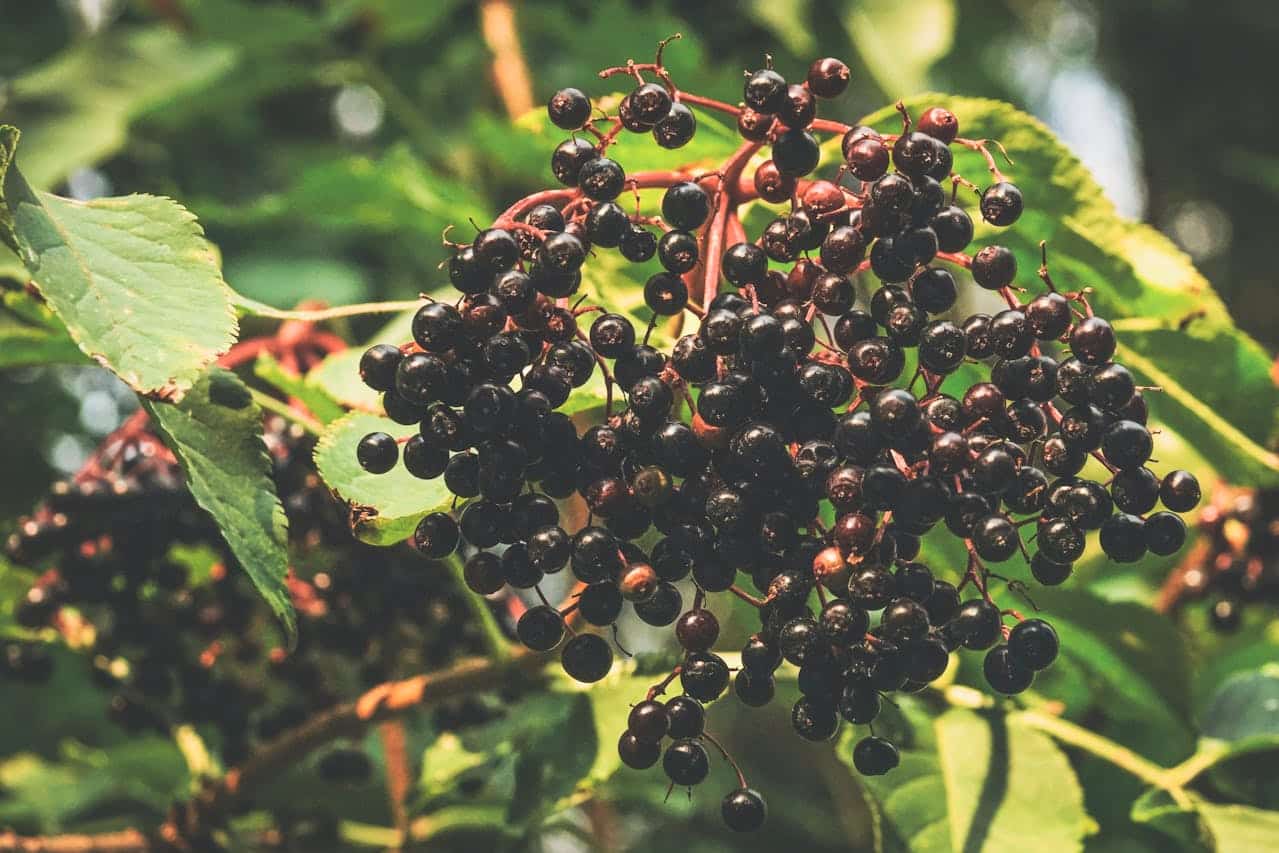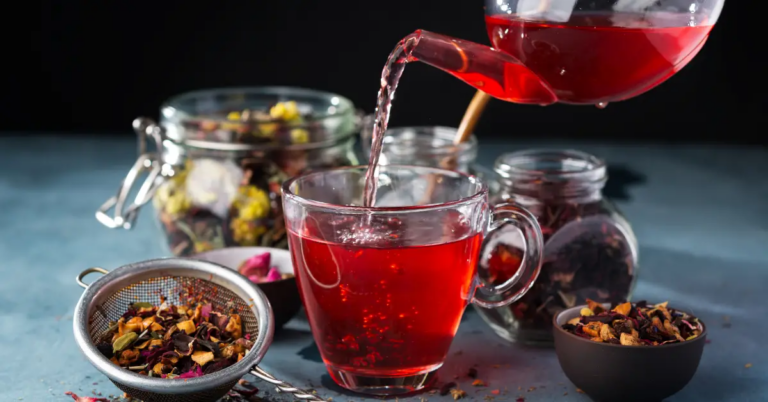For centuries, natural remedies like herbs and berries have been trusted allies in supporting health, particularly in boosting the immune system. Among these remedies, the elderberry stands out, not only for its rich flavor but for its potential antiviral properties. Long used in traditional recipes like syrups, jams, and wines, this tart and nutritious berry has recently gained scientific attention for its ability to protect against viral infections.
According to a recent study, elderberry’s antiviral effects may help prevent viruses from attaching to and entering human cells. This research positions elderberries as a promising natural aid for immune defense, especially during cold and flu season.
As the evidence builds, elderberries continue to be a delicious and functional addition to both culinary and medicinal practices, offering benefits far beyond their sharp, refreshing taste.
A Nutrient-Packed Berry with Ancient Roots
Elderberries have been a key part of natural medicine for centuries, prized for their healing properties and rich nutritional profile. The elderberry plant (Sambucus nigra), native to Europe and North America, flourishes in sunny, well-drained areas. Its history of use spans a variety of cultures, where both the berries and flowers were traditionally used to treat illnesses like fevers, colds, and respiratory issues. Indigenous communities valued elderberries for their ability to reduce inflammation, induce sweating during fevers, and boost recovery during sickness.
Beyond medicinal uses, elderberries have long been a culinary delight. Their sharp, tart flavor makes them popular in jams, syrups, and wines. Harvested in late summer, elderberries offer a nutritious addition to various foods, but they must be handled with care. Unripe or raw elderberries contain cyanogenic glycosides, which can produce toxins if consumed without proper cooking. Ensuring that elderberries are fully ripe and cooked makes them safe and enjoyable to eat.
The remarkable health benefits of elderberries are largely due to their high concentration of antioxidants and bioactive compounds, such as flavonoids and anthocyanins. These compounds are known for their powerful antiviral, anti-inflammatory, and immune-boosting effects. Flavonoids help neutralize free radicals, protecting the body’s cells from damage, while anthocyanins play a crucial role in supporting the immune system’s response to infection.
Historically used as a folk remedy, elderberries have since gained scientific recognition for their potential to help fight off viral infections like the flu. Today, elderberries are a common ingredient in immune-supporting products, making their way into modern wellness routines through syrups, capsules, and teas. This versatile berry continues to be a valuable natural resource for maintaining health and well-being, particularly during cold and flu season.

The Science Behind Elderberries’ Antiviral Properties
Elderberries are not only a delicious fruit but also a scientifically backed superfood when it comes to their antiviral effects, particularly in supporting the immune system. Researchers from the University of Sydney, Australia, have uncovered the impressive way elderberries interact with viruses, especially the flu virus. The key to elderberries’ effectiveness lies in their high concentration of bioactive compounds like flavonoids and anthocyanins, which give them their strong antiviral properties.
The study, published in the Journal of Functional Foods, explored how elderberries can stop viruses from entering and infecting human cells. According to the findings, elderberry compounds can block key viral proteins that are responsible for attaching the virus to human cells. This early interference prevents the virus from successfully infecting the body. The research found that elderberry compounds were able to stop viral propagation at various stages of infection, a crucial discovery in understanding how natural remedies can combat flu-like symptoms.
Interestingly, elderberries also seem to support the immune system in a broader way. Beyond directly fighting off viral infections, elderberries stimulate the production of cytokines, which are vital signaling molecules that help the immune system respond more effectively to threats. These cytokines help the body communicate between cells, ensuring a faster and stronger immune response.
Additionally, the potent flavonoids found in elderberries serve as powerful antioxidants. By neutralizing harmful free radicals, elderberries protect the body’s cells from oxidative stress, further enhancing overall immune health. Research indicates that these flavonoids are key players in elderberry’s ability to strengthen immune defenses, making elderberries a natural ally during cold and flu seasons.
These scientific findings demonstrate that elderberries are more than just a traditional remedy—they are backed by modern research as an effective tool in the fight against viruses and a way to boost immune system function. As more studies continue to explore the potential of elderberries, their role as a natural solution for preventing illness becomes increasingly clear.

The Importance of Proper Preparation
While elderberries are packed with health benefits, it’s important to recognize that not all parts of the plant are safe to consume in their raw form. Raw or unripe elderberries contain cyanogenic glycosides, which can produce cyanide, a toxic substance. Ingesting elderberries that haven’t been properly prepared can lead to nausea, vomiting, and even more severe symptoms in some cases. This is why understanding the proper preparation methods is crucial when incorporating elderberries into your diet or supplement routine.
The key to safely consuming elderberries is ensuring they are fully ripe and cooked before use. Heat breaks down the toxic compounds in the berries, making them safe to enjoy in a variety of culinary forms such as syrups, teas, and jams. Many elderberry products available on the market, such as elderberry syrup or capsules, are pre-processed and safe for immediate consumption.
In addition to cooking, another popular way to use elderberries is through elderberry extract or supplements. These products are typically created through a careful extraction process that removes any harmful substances, allowing for a safe and potent form of elderberry that retains its antiviral and immune-boosting properties.
It’s also worth noting that elderberry leaves, bark, and roots should never be consumed, as they contain higher concentrations of cyanogenic compounds. If you’re making your own elderberry remedies, such as syrups or teas, make sure to only use the ripe berries and flowers, and always follow trusted recipes or guidelines to avoid any potential risks.
When used correctly, elderberries can be a safe and effective way to support your immune system and protect your body from illness. But as with any natural remedy, ensuring proper preparation is essential for reaping the full benefits without any unwanted side effects.
My Personal RX on Supporting Your Immune System
As a doctor, I always encourage my patients to take a proactive approach to maintaining their health, especially when it comes to supporting the immune system. Incorporating natural remedies like elderberries can be a great addition to your health routine, but it’s important to be mindful of how and when to use them for maximum benefit. Below are my top recommendations for natural ways to keep your immune system strong, based on both personal and professional experience.
- Incorporate Elderberry Syrup During Cold & Flu Season: Elderberry syrup is a powerful, natural way to support your immune system during peak cold and flu months. A daily dose can help reduce the severity and duration of flu symptoms if taken early.
- Try Elderberry Tea for Immune Support and Relaxation: Elderberry tea is a calming way to support your health. The warm liquid can soothe your throat, while the elderberries work their magic on your immune system. Make it a part of your bedtime routine for a relaxing, health-boosting habit.
- Use Immune Support for a Comprehensive Boost: Alongside elderberries, consider adding Immune Support to your routine. These targeted blends of nutrients provide broad-spectrum support to your body’s immune reserves, ensuring you’re better equipped to fend off seasonal illnesses.
- Stay Hydrated and Eat a Balanced Diet: Your immune system functions best when it has the proper nutrients. Drinking plenty of water, eating a balanced diet rich in fruits and vegetables, and incorporating elderberry products can help give your immune system what it needs to perform optimally.
- Don’t Forget About Superfoods in Your Meals: Adding nutrient-dense superfoods to your daily meals can give your body an extra edge. Superfoods Cookbook can provide you with fun and easy ways to integrate immune-supporting foods like berries, greens, and nuts into your diet for long-term benefits.
- Get Enough Sleep and Manage Stress: Your immune system needs rest to function at its best. Aim for 7-9 hours of sleep per night and practice stress management techniques, like deep breathing or meditation, to help your body stay resilient.
- Incorporate Fermented Foods for Gut Health: A healthy gut is key to a strong immune system. Fermented foods like yogurt, kimchi, and sauerkraut provide good bacteria that support gut health, which in turn boosts your immune response.
- Exercise Regularly but Don’t Overdo It: Moderate exercise strengthens the immune system by promoting good circulation, but be cautious not to over-exercise, as this can weaken your body’s defenses.
- Take Precautions with Travel: If you’re traveling, especially by plane, be sure to take extra precautions like wearing a mask, washing your hands frequently, and supplementing with elderberry or immune support blends to stay healthy on the go.

Sources:
- Torabian, G., Valtchev, P., Adil, Q., & Dehghani, F. (2019). Anti-influenza activity of elderberry (Sambucus nigra). Journal of Functional Foods, 54, 353–360. https://doi.org/10.1016/j.jff.2019.01.031
- Rd, M. M. C. (2020, February 13). What to know about elderberries. The Ohio State University Wexner Medical Center. https://wexnermedical.osu.edu/blog/what-to-know-about-elderberries
- Kinoshita, E., Hayashi, K., Katayama, H., Hayashi, T., & Obata, A. (2012). Anti-Influenza virus effects of elderberry juice and its fractions. Bioscience Biotechnology and Biochemistry, 76(9), 1633–1638. https://doi.org/10.1271/bbb.120112











 Subscribe to Ask Dr. Nandi YouTube Channel
Subscribe to Ask Dr. Nandi YouTube Channel









